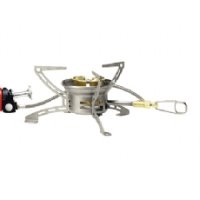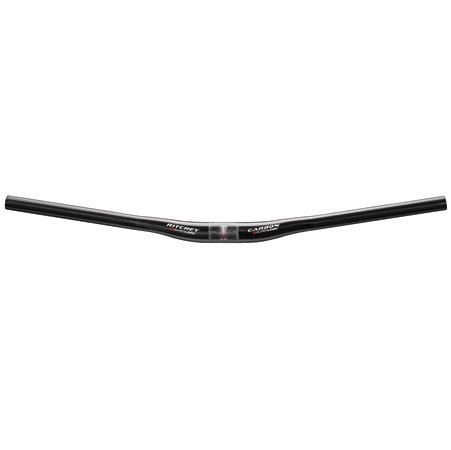Primus P-328985 Omnifuel W/ . 6l Fuel Bottle

You looking to find the
"Primus P-328985 Omnifuel W/ . 6l Fuel Bottle" Good news! You can purchase
Primus P-328985 Omnifuel W/ . 6l Fuel Bottle with secure price and compare to view update price on this product. And deals on this product is available only for limited time.

Price: Too low to display 

Product Description
Our most tried and true product has now become even more flexible. OmniFuel uses very advanced materials to offer advanced functionality and is designed to handle demanding conditions, extreme altitudes and both high and low temperatures. OmniFuel is a sturdy stove that works with LP gas, gasoline/petrol, diesel and kerosene - even aviation fuel. Using the separate control knob, the flame can be adjusted to provide the exact heat required. The ErgoPump, the multi-tool with an integrated cleaning needle, nylon stuff sack and the windscreen and heat reflector are included.
Primus P-328985 Omnifuel W/ . 6l Fuel Bottle Review
The Omnifuel promises one thing: the ability to burn nearly any kind of fuel in the world in a rock solid, dependable platform. On this front, it delivers. There is ample evidence on Youtube and various camping forums attesting to the diversity of fuels capable of running the stove -- mineral spirits, biodiesel, kerosene, naptha, panel wipe, Coleman fuel, gasoline, diesel, aviation fuel, and pressurized butane canisters both in gas form (upright) and in a liquid state with the canister inverted. The latter is particularly important for cold weather operation.
Included with the stove above is a 530 ml fuel bottle, the Ergopump, an aluminum windscreen, aluminum heat reflector, three different-sized jets for various fuels, a small sack for the stove, a larger sack that fits the stove plus bottle, and a tube of silicone grease for the pump leather. It's probably the most inclusive set of bits I have ever gotten with a stove.
Primus recommends using the butane canisters for the best and easiest operation of the stove. Using these canisters is the cleanest and fastest way to get the stove running. But I think they say this just to keep people happy. The stove will happily burn Coleman Fuel almost as well as butane cans. The stove has two valves -- one on the fuel line right at the bottle, and another on the burner. It is easy to dial back the stove for simmering, but I still found the ability to low simmer somewhat lackluster. It is a step above most stoves, but still a far cry from even a simple screw on micro stove in its ability to simmer. The $10 micro stove I have will simmer like no other.
I personally tried the stove with butane, Coleman fuel, kerosene and unleaded gasoline. Primus suggests priming the stove with bottle fuel, but I don't suggest this. It's a dirty and smelly affair particulary with kerosene. I use alcohol to prime it. Once sufficiently primed, the stove is a screamer at full tilt. It's insanely loud. I have read, but can't confirm, that the highest heat output is delivered when using the butane canisters. Avoid unleaded gas. It smells horrifying, leaves a messy residue in the stove, and seems to clog up the filter.
You will not find a single piece of plastic on the stove itself. There is but one or two bits of plastic on the pump. It's solidly built, entirely field servicable and strippable. The included multitool has appropriately sized wrenches for changing out the jets, accessing the in-line fuel filter, and also includes a teensy pricker for cleaning the jets.
Ok, so that's the basic overview. Now the parts that need improvement -- at its current price, this stove is one of the higher priced models. It's on average $20-$40 more than comparable models from Nova, MSR or Brunton. At this price, I expect perfection. The Omnifuel does not deliver on this part. I found the quality of the machining to be substandard with many rough edges and tool marks that were not cleaned up. It looked a bit homemade. The included multi tool is made of steel. The fittings are brass. From the factory, the fittings are insanely over tightened. This means that when you use the multitool you are 100% assured to mar and damage the brass fittings no matter how hard you try. I have a lot of concerns about the long term ability to clean and maintain this stove without damaging it. In particular, the fuel line -- not a cheap or easy part to obtain. On the first time I went to inspect the filter, the brass fitting was damaged even though I took every precaution possible to avoid it. Only a single distributor in the UK had spare fuel lines and they were about $50. Further, when changing the jets, the quality of the fit between the jets and the burner cup is lacking which requires you to crank and crank on the jet so it fits snugly. If you don't do this, fuel will leak out from beside the jet and create a sooty flame.
What you should do, and what I found works the best is to obtain a 10mm and 11mm wrenchs4. Wrap the brass fittings with a single piece of scotch tape, and gently unscrew them with a proper wrench. With a little care and finesse, you can avoid the hack job that results from using the multitool. This is not a deal breaker as every stove with brass fittings will have some tools marks on it, but just be careful.
Performance on kerosene was a bit lackluster. This has to do, I believe, with the small kerosene/diesel jet. It is a 27 jet. For comparison, the white gas jet is a 37. Boil times were significantly longer with the kerosene than with Coleman fuel even though kerosene in theory has more energy than Coleman fuel. If Primus had included a 32 sized jet instead of the 27, kerosene would have burned just as cleanly, but boiled water faster. Bigger jet = more fuel burning = more heat. I still like kerosene in this stove because it is about half the cost of Coleman Fuel, and on a cost effectiveness basis, it is *far* cheaper than using butane cans which are on the order of 10x the cost per hour of stove use.
I give the stove high marks for delivering on its promises out of the box. I have mixed feelings about recommending a stove with somewhat questionable quality control in place. The noise is a bit of an issue. You don't really appreciate how loud this thing is until you crank it up at full tilt. If Primus delivered a stove that fit like a Swiss watch, which they ought to be doing at this price, it would be the greatest stove in the world. It's a simple, effective, but with some quality control issues, I think it is just above average. The stove is definitely the best in class, even with its less than perfect manufacture.
--
Update: I tried a number of other fuels in it. In addition to what I listed above, I also tried 100% biodiesel made from canola oil. Bad idea. Not only did it burn poorly, there was significant gooey residue in the fuel system that required extensive cleaning. I also ran a little #2 diesel through the stove. Not nearly the problems I had with biodiesel, but still a bad idea. Again, a significant amount of deposits. I used about 200 ml of diesel which ran for almost an hour in the stove. Fairly clean burn at the flame with a little bit of yellow in the tips, but a the generator tube was crusted with gunk, the underside of the jet coated in a slimy gunk too.
Most of the consumer Reviews tell that the "Primus P-328985 Omnifuel W/ . 6l Fuel Bottle" are high quality item. You can read each testimony from consumers to find out cons and pros from
Primus P-328985 Omnifuel W/ . 6l Fuel Bottle ...













